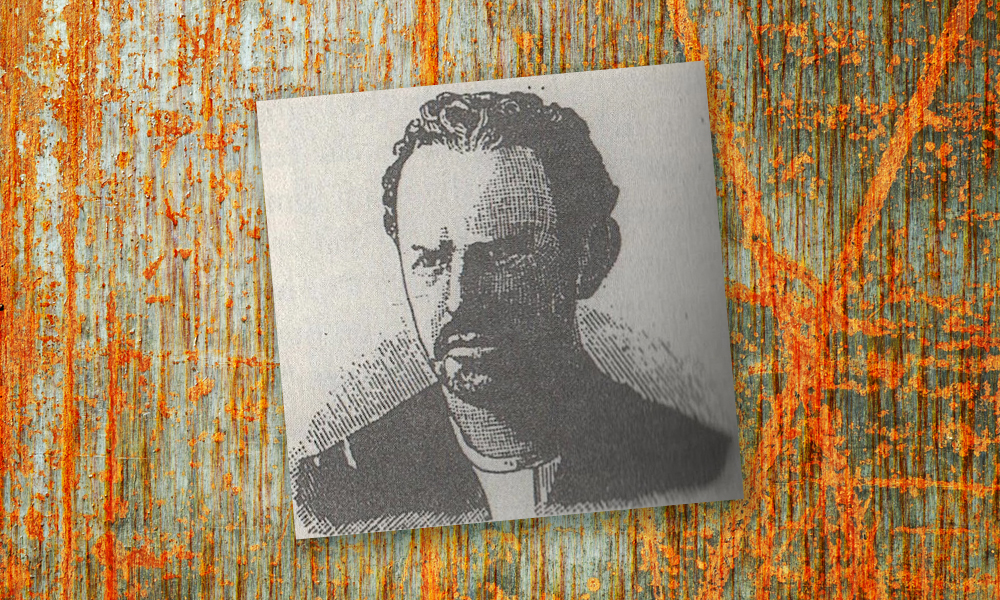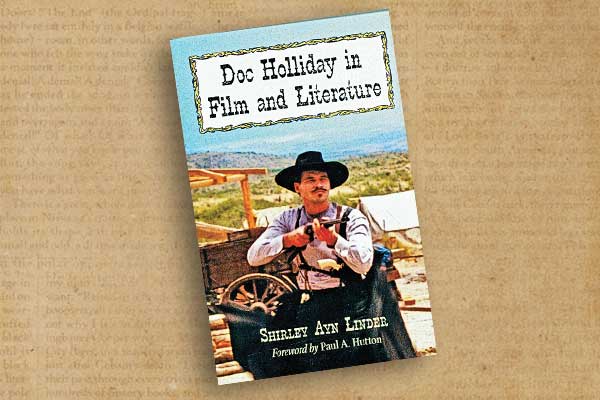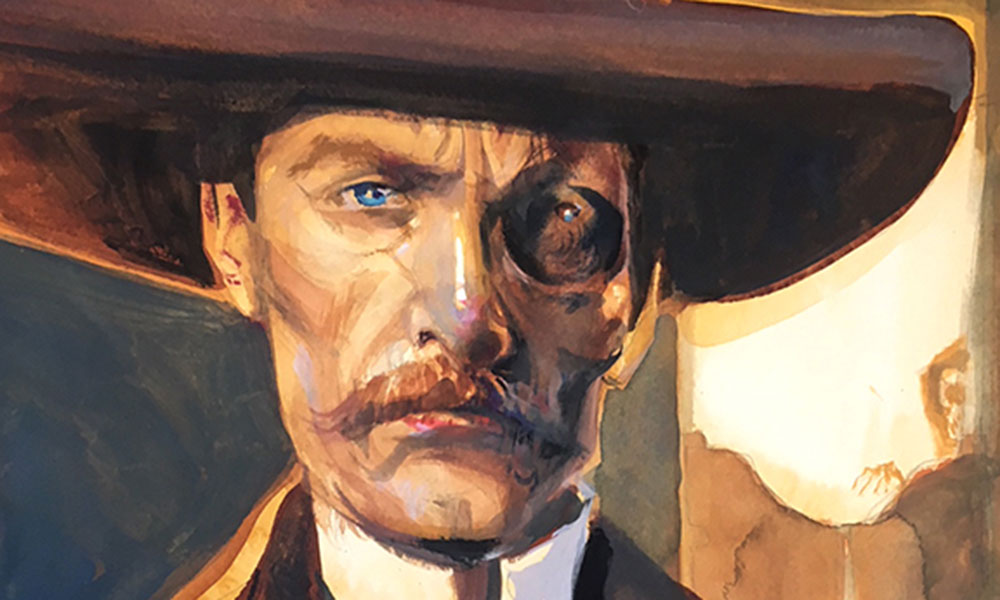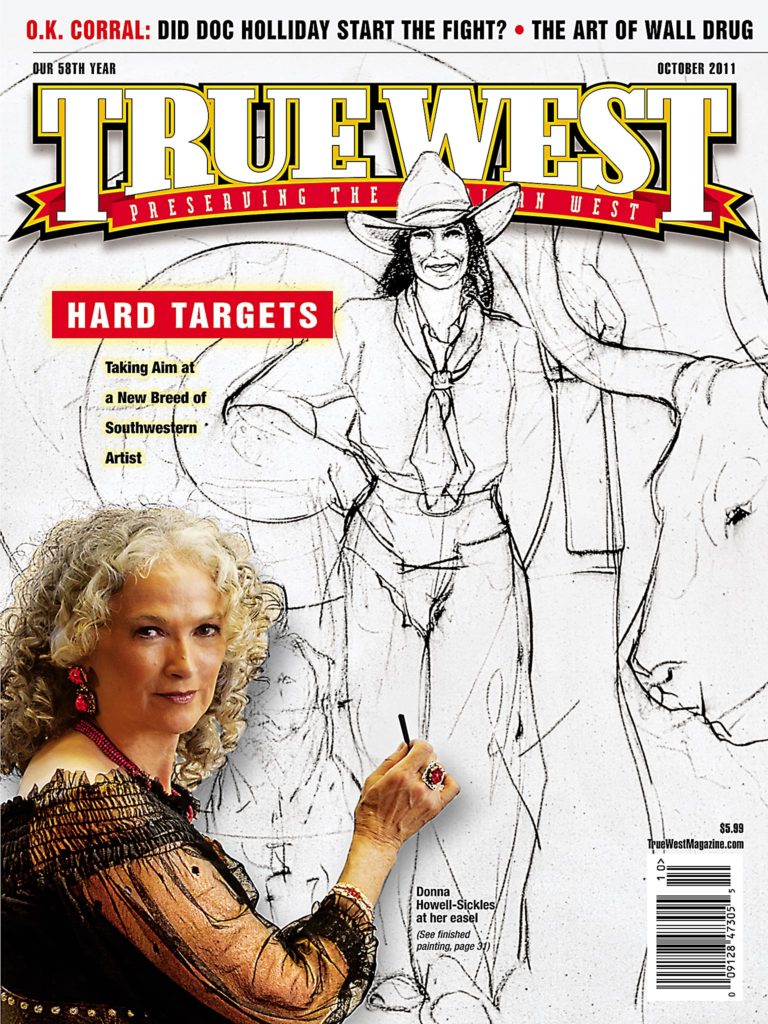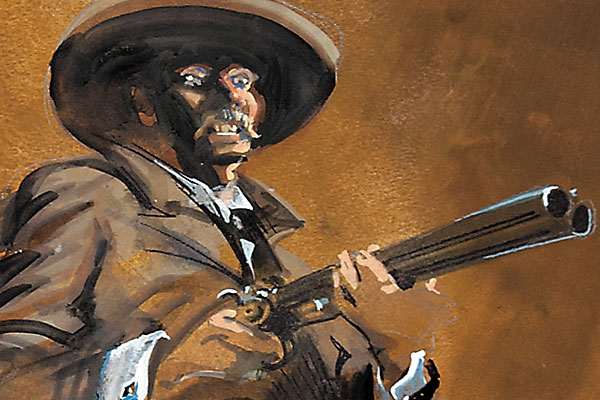 October 26, 1881
October 26, 1881
Plus: Did Wyatt Earp Shoot Morgan in the Back?
Come along,” says Virgil Earp, as he hands a Wells, Fargo & Co. shotgun to Doc Holliday. The quartet starts up Fourth Street, walking four abreast, but after they turn the corner at Fremont Street, they walk two by two, favoring the south sidewalk.
Striding purposefully past the rear entrance to the O.K. Corral, the quartet sees Cochise County Sheriff John Behan coming toward them. “Hold up boys, don’t go down there or there will be trouble!”
Virgil is firm about enforcing the ordinance banning guns within the city limits. “Johnny, I am going down to disarm them,” he tells the sheriff.
“I have been down there to disarm them!” Behan cries.
Virgil and his brother Wyatt resheathe their weapons. Despite Behan’s claim, they continue on, to meet their tormentors face to face and tell them off.
But as they step into the lot, they see Behan was not quite telling the truth. Both Billy Clanton and Frank McLaury have on holsters with their pistols in plain sight.
“Boys, throw up your hands,” Virgil demands. “I want your guns.”
Nervous about the confrontation and sensing the bristling attitude of Morgan Earp and Doc Holliday, Frank McLaury says, “We will,” and makes a motion to pull his revolver.
Making a sudden move, Holliday thrusts his shotgun threateningly toward Tom McLaury. Wyatt jerks his pistol from his coat pocket, and Billy Clanton pulls his revolver.
“Hold on, I don’t want that!” says Virgil, realizing the situation is slipping from his control.
Two shots ring out, almost as one. Then a long pause. Frank McLaury clutches his stomach and staggers, as the firing becomes general (Ike Clanton flees once the shooting starts).
Some 30 shots are fired in less than 30 seconds. The most famous fight in the West is over. The repercussions are only beginning.
Did Wyatt Earp Shoot His Brother Morgan in the Back?
In recent years, a theory has been advanced that in the confusion of the Tombstone street fight, Wyatt Earp may have shot his brother Morgan. We asked expert Jeff Morey to weigh in on this “friendly fire” theory:
The problem with Morgan’s wound is that the two newspapers give completely opposite trajectories. About Morg’s wound the Tombstone Daily Nugget reported, “…the ball passing through the point of the left shoulder blade across his back, just grazing the backbone and coming out at the shoulder, the ball remaining inside of his shirt.”
On the other hand, The Tombstone Epitaph reported, “His [Virgil Earp’s] brother Morgan was shot through the shoulders, the ball entering the point of the right shoulder blade, following across the back, shattering off a piece of one of the vertebrae and passing out the left shoulder in about the same position that it entered the right.”
Until someone comes up with the actual doctor’s report, we are stuck with two opposite accounts.
What are the implications of the two bullet trajectories?
If the Nugget is right, and the bullet hit Morgan in the left shoulder, the chances that Morg was hit by friendly fire becomes a strong possibility.
Virgil testified that he fired four times, once at Frank McLaury, and three times at Billy Clanton. When Virgil fired at Frank, that Cowboy was moving out from the lot. This means that Frank and Morgan were both north of Virgil when he fired. This being the case, Virgil’s shot at Frank might have inadvertently hit Morg in the left shoulder. Virgil would never have known his shot brought Morg down.
The other friendly fire possibility involves Wyatt. Ike Clanton testified that as he and Wyatt wrestled, Wyatt’s revolver discharged. We don’t know how Wyatt was holding his pistol at that moment, but, since Wyatt was right handed, Ike might have pushed Wyatt’s right hand out and away, pointing it in the general direction of Morgan. Wyatt’s pistol might have discharged just before Wyatt pushed Ike away. At that instant, Wyatt became aware his younger brother was down and thus became fully preoccupied with Morg’s well-being.
Wyatt’s distraction, at that instant, explains why he never realized Ike had scooted behind him and clambered into the front door of C.S. Fly’s Boarding House. For the rest of his long life, Wyatt claimed Ike ran away through the lot. But Ike didn’t do that.
Wyatt also never realized his shot brought Morgan down, that is, if the Epitaph got the trajectory right.
Aftermath: Odds & Ends
After the fight, Doc Holliday walked into his room at C.S. Fly’s Boarding House to check on his live-in girlfriend Kate. She later said, “Doc came in, and sat on the side of the bed and cried and said, ‘Oh, this is just awful—awful.’”
On October 29, Ike Clanton swore out complaints against the Earps and Holliday. Judge Wells Spicer heard the case. Thomas Fitch, an old friend of Mark Twain’s, served as Wyatt Earp’s counsel. Thomas J. Drum represented Holliday. Virtually all of the Cowboy witnesses tried to pin the fight on Holliday, but the defense team avoided putting him on the witness stand. Spicer ruled in their favor, saying, “There being no sufficient cause to believe the within named Wyatt S. Earp and John H. Holliday guilty of the offense mentioned within,
I order them to be released.”
In January 1882, the inevitable rematch between the Cowboys and the Earps and Holliday almost became reality when Holliday and Johnny Ringo faced off on Allen Street. The Earps and their supporters were lined up on the north side of Fremont Street, with the Cowboys on the south side. Before the fight could open, a police officer, Jim Flynn, grabbed Ringo from behind and arrested him, Holliday and Wyatt Earp. Holliday and Ringo were fined $32 each for carrying concealed weapons.
After the killing of Morgan Earp in March 1882, Holliday joined Wyatt on his notorious vendetta ride, and he participated in the killings of Frank Stilwell and Florentino Cruz. He left Arizona a fugitive, never to return. He died in
Glenwood Springs, Colorado, in 1887.
Recommended: The Illustrated Life & Times of Doc Holliday by Bob Boze Bell and Jeff Morey, published by Tri Star-Boze.
Based on the research of Jeff Morey
– Illustrations by Bob Boze Bell –


